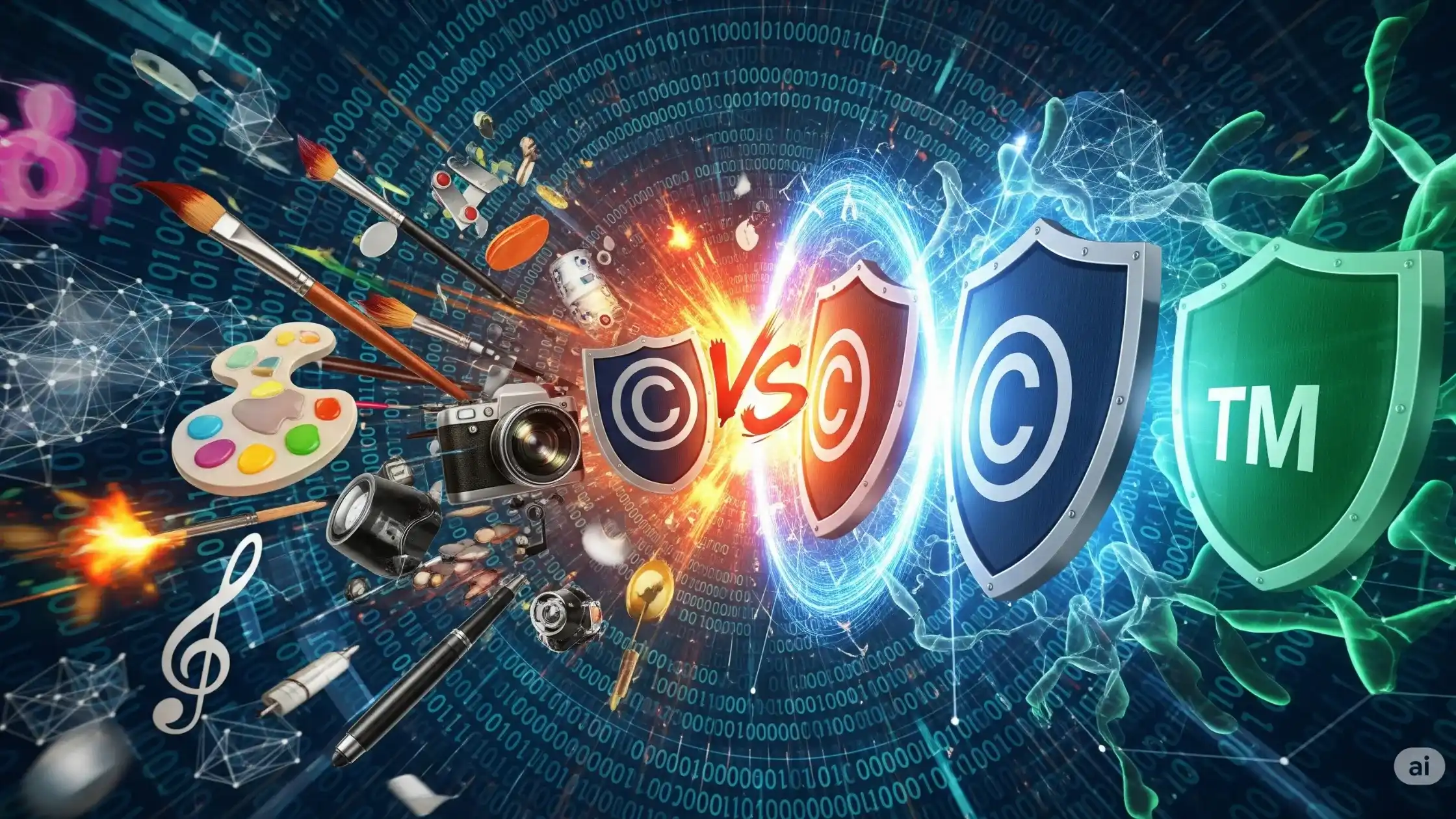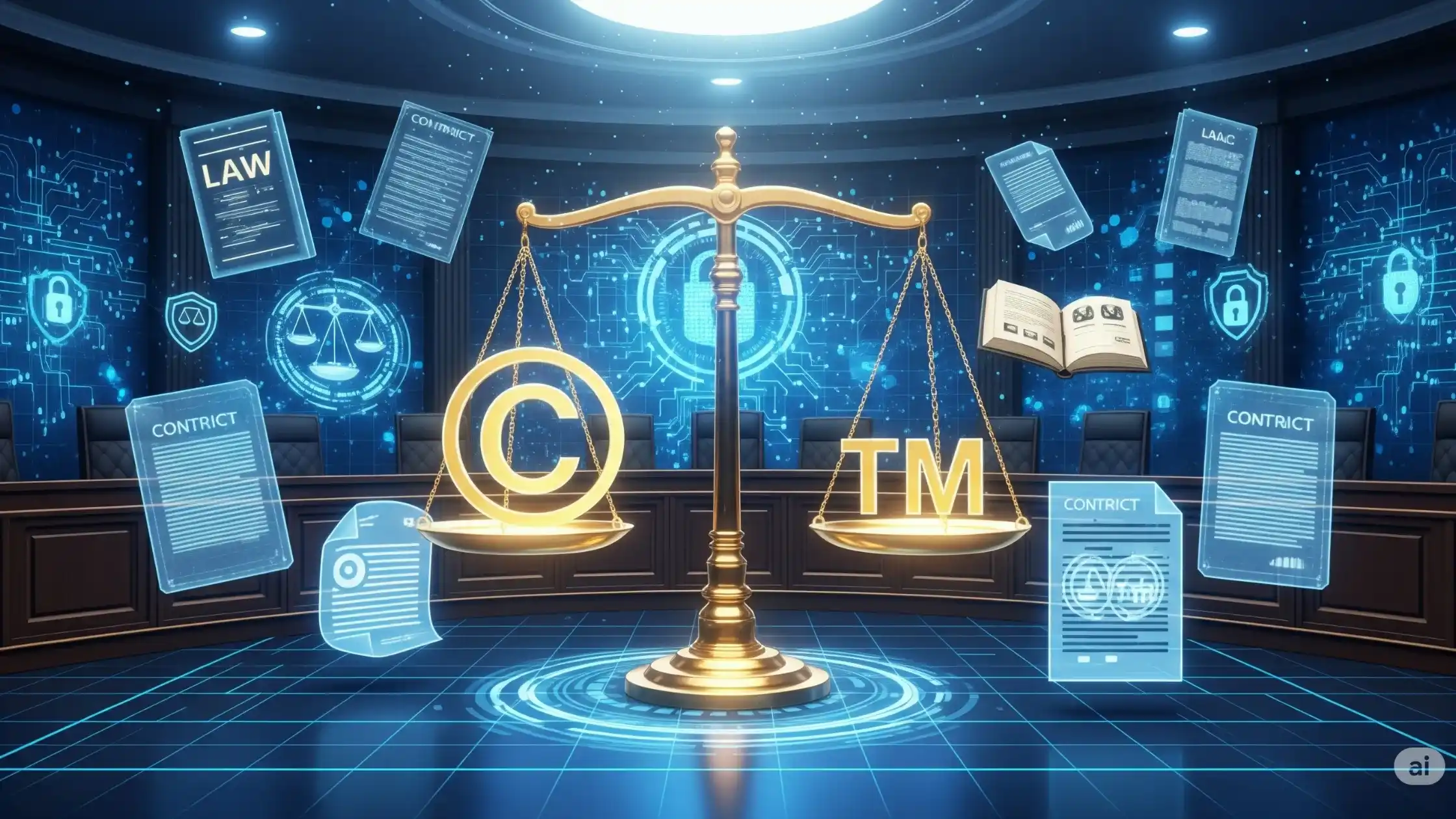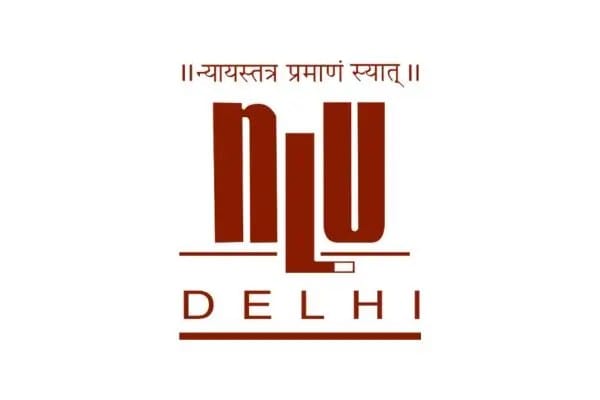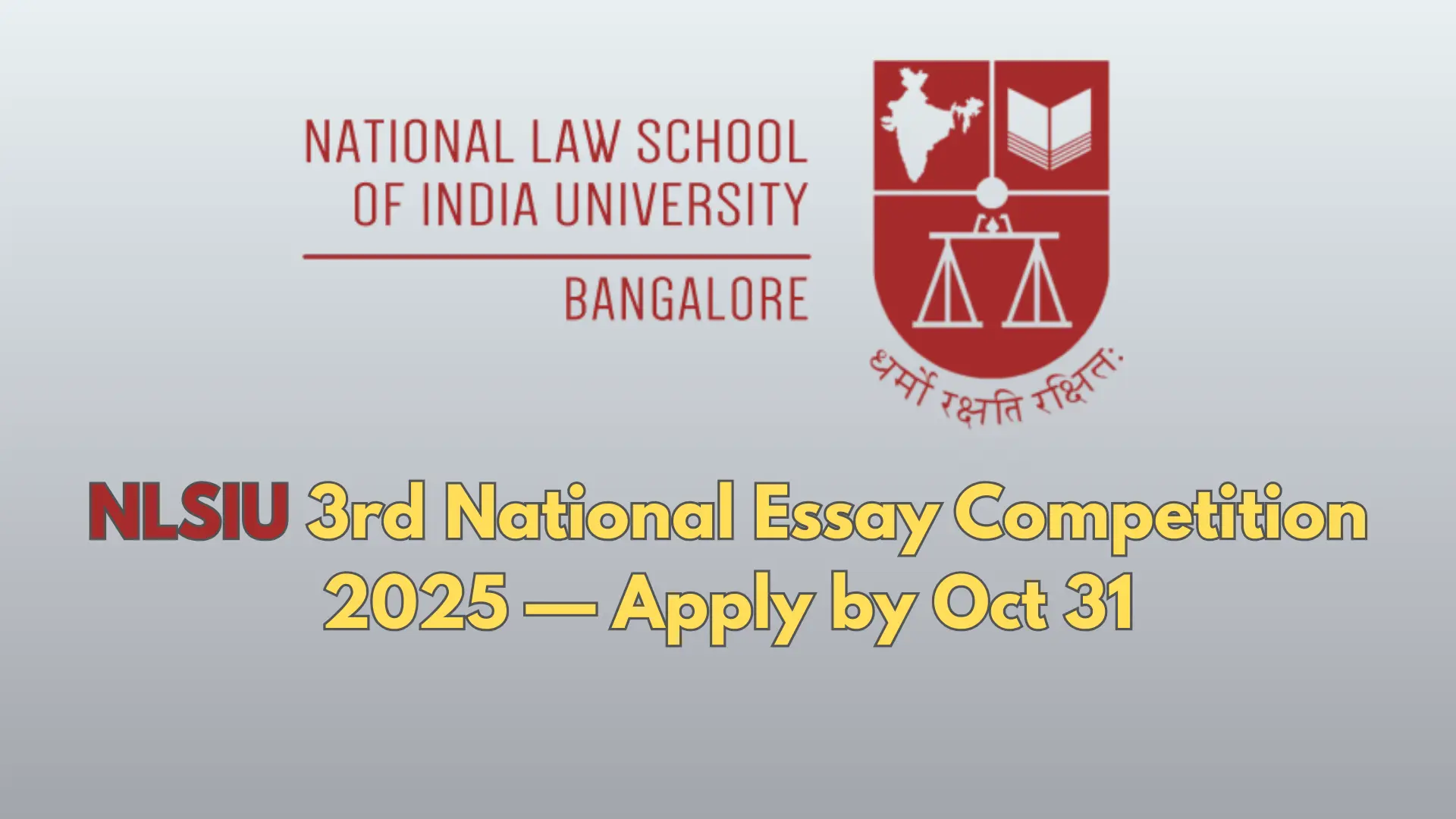Social media has become a revolutionised platform for expressing one’s intellectual abilities, giving artists, writers, musicians, and businesses extraordinary access to global audiences. While these platforms motivate and empower creators to show and express their creations and share with people, collaborate and build community, making their work more accessible to a large number of people, they also amplify threats from copyright infringement to online impersonation, thus making the digital world a new battleground for creativity and protecting originality.
For instance, it is very common these days to see individuals producing content such as dancing, creating song parodies or musical parodies, or even people selling perfumes that replicate the scents of expensive perfume brands at a cheap and affordable price for everyone. Therefore, it’s not just about copyright infringement; it’s also about misappropriating someone’s creativity.
| Topic | Key Points | Relevance in India |
|---|---|---|
| What is Intellectual Property? | Creations of the mind – inventions, designs, art, music, brands, trade secrets. | IP Rights protect originality and give creators legal ownership. |
| Major Threats on Social Media | Copyright infringement, impersonation, fake accounts, deepfakes, AI misuse. | Increasing misuse of content online leading to loss of originality & market value. |
| Key Indian Laws Protecting IP | • Copyright Act, 1957 (literary, artistic, digital works) • IT Act, 2000 & IT Rules, 2021 • Contract Law & Trade Secrets Protection | Together, these safeguard online content and prevent unauthorized use. |
| Landmark Court Cases | • Super Cassettes (T-Series) v. Myspace (Delhi HC) • Neela Film Productions v. TMKOC & Others (2024, AI & piracy case) | Shaped legal protection for digital IP in India. |
| Tips to Protect Your IP Online | • Register copyright & trademarks • Use licensing agreements • Employ AI-powered detection tools • Restrict access with passwords & roles | Helps creators prevent misuse and secure originality in the digital space. |
What Are Intellectual Property Rights in India?
Intellectual property refers to the creations of the mind or the products of human intellect, such as inventions, designs, literary and artistic works, symbols, names, and images used in commerce, and many more. Intellectual Property Rights are associated with intangible assets owned by a person or a company, which are legally protected from being used without consent. These rights aim to protect their ownership over such creations. The creators and inventors are granted legal rights over their mental and physical efforts. In this way, Intellectual Property Rights give your image a competitive advantage over other similar businesses, helping you to prevent unauthorised use of intellectual property. Moreover, it strengthens your business and also opens up opportunities for generating income.

How Social Media Poses a Threat to Intellectual Property
Creators showcase their creations by posting on social media platforms, which, unfortunately, pose a threat to original work. It becomes easier for the online thieves to copy, share without authorisation, and misuse creative content. These offenders make fake accounts and impersonate brands by stealing or closely mimicking trademarks or making trademarks confusing to audiences and causing the rightful owners to lose market share. Additionally, emerging technologies introduce new risks such as generating AI works, deepfakes, and digital edits, by which they manipulate videos or images where someone’s likes get replaced from one content to a different one, or making videos of people doing things that they never did. These activities blur the lines of ownership and authenticity. Activities like these have become very common, and people lose much of their intellectual property and creative values.
Important Indian Laws to Protect Intellectual Property Online
India has a strong set of laws that robustly protect creators’ intellectual property rights of the creators protecting various forms of work, including digital content shared on social media platforms. There are some vital laws which empower and encourage, safeguarding a dynamic online environment, ensuring and respecting original creations and protecting them.
1. Indian Copyright Act, 1957
Often referred to as the author’s rights. It safeguards an array of art and literary works, which include paintings, photographs, illustrations, musical compositions, sound recordings, computer programs, books, poems, movies, and many more. It grants authors exclusive rights over the original works of the authors, empowering them to manage and protect their work against unauthorised use at a very minimal expense. Copyright serves as a legal shield for original creations that involve effort, imagination, and skill. For instance, this article will get copyright protection because it results from intellectual use, and no one is permitted to copy and paste it somewhere for their own use and gain benefits out of it. Copyright bestows a range of entitlements on the owner, including: distribution rights, adaptation rights, reproduction rights, display rights, moral rights, and performance rights.
2. The Information Technology (IT) Act, 2000& IT Rules,2021
This is a vital law in India for matters related to cybercrime and e-commerce. It lays down the digital intermediaries and social media platforms. This law provides immunity to digital intermediaries, such as social media companies, and protects them from liability for third-party content they host, as long as they do not create, alter, or control the original work. It empowers these platforms to remove illegal content, thereby safeguarding the originality from harmful modifications and misuse, which undermine their efforts.
3. Contract Law and Trade Secrets Protection
Contracts help to protect and safeguard as they prevent leaks or misuse of valuable or sensitive content when it is to be shared with partners or collaborators. They set rules for how intellectual properties can be used, shared, or licensed on social media platforms. Social media sites themselves have their agreements with users that specify Intellectual Property ownership rights and usage permissions. If these contracts related to IP are broken, for example, by reposting or misusing content, contract law offers remedies such as relief, damages, injunctions, termination or agreements to protect creators.
Trade secrets cover business strategies or methods that give a company an edge and are not publicly known. On social media platforms and other digital sites, these protections help prevent confidential information that is shared with other people, such as partners, employers or collaborators ,from being misused.
Landmark Indian Court Cases on Intellectual Property & Social Media
1. Super Cassettes Industries Ltd vs Myspace Inc.
Super Cassettes Industries Ltd, better known as T-Series, recognised as India’s top music company, brought a copyright dispute against Myspace in 2007. T-Series claimed that Myspace was letting users upload their copyrighted music and videos without permission, breaking the Copyright Act of 1957. The Delhi High Court ruled that platforms like Myspace are not required to review every piece of content before posting it. This case plays an important role in protecting creators from IP theft while encouraging creativity online.
2. Neela Film Productions Pvt. Ltd. v. Taarak Mehta Ka Ooltah Chashmah & Others (2024)
Neela Film Productions Pvt Ltd, makers of the TV show “Taarak Mehta Ka Oolta Chashma,” filed a lawsuit against several websites, YouTube channels, online stores, and even unknown individuals for violating their copyrighted content. These violations also included pirated videos, AI-generated deepfakes, and unauthorised use and catchphrases for commercial gains. In response,the court stepped in with a broad order seeking an injunction, which blocked the unauthorised sharing, selling, and adaptation of the show’s material on digital platforms.
Effective Tips to Protect Your Content Online in India
1. Utilise AI-powered intent recognition to detect potential threats
It identifies the behaviour or any changes in the uploaded contents on the websites and identifies unusual activity that could indicate a security breach.
2. Registration of copyright and trademark
Copyright registration in India can be done at a very minimal cost. It protects the creativity and originality because it’s easier to enforce your rights
3. Use of clear licensing agreements
When selling or sharing new content, ensure that there is a contract that safeguards your interests and prevents unauthorised use.
4. Customising access control
Restricting access to view or share sensitive content through password protection, assigning user roles, or creating private groups.
Conclusion
India has been growing its digital economy at a rapid pace. It is our responsibility to save our own efforts and creativity. With technological advancement, it is becoming easier to track and exploit intangible assets. Intellectual Property Rights control, monetise and safeguard original work. It is essential for every artist to know these rights in this ever-changing digital world.
Right To Own: The Intellectual Property Rights In India (Literary, Artistic, Musical and Digital works). In an era of influencing-beasts, every artist/ writer & innovator or content creator must know what are the copyright laws India or trade secrets India is known for!!
When you protect your IP over the internet, you make sure that your hard work stays safe, legally proven, and commercially able. Fighting for your originality through effective social media copyright compliance, AI-generated content protections, license agreements can give you good returns in a rapidly solving Indian digital scenario.
Your imagination is the thing, which no one can include of thee — do not allow it to be prostituted. Be updated, be aware and use the IP laws of India to prosper safely in the era of digital-ness.
Shristy Sen
4th Year BA LLB (Hons), KIIT School of Law
Specializing in Intellectual Property Rights, Shristy has hands-on experience in trademarks, copyrights, and legal drafting. Passionate about content writing, she blends legal expertise with clear, engaging communication.









